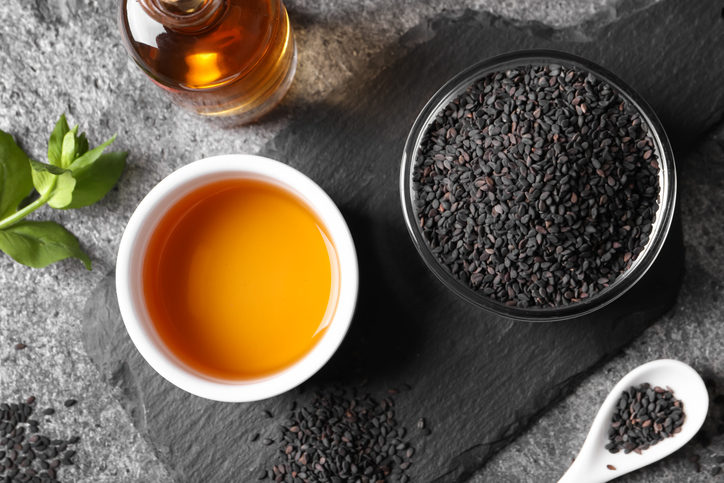A study in theAvicenna Journal of Phytomedicine investigated how black seed oil impacts oxidative stress in patients with Rheumatoid arthritis. Subjects given black seed oil showed improvement in inflammation and reduced oxidative stress after eight weeks (1).
Benefits also have been seen in bronchial health. Black seed oil is rich in antioxidants that help fight inflammation. Those with lung issues should consult a physician, who may help with protocol using black seed oil.
There are cognitive benefits as well. A study on elderly adults published in the Journal of Ethnopharmacologydetermined that, after nine weeks,Nigella sativahad a positive impact on memory, attention and cognition (2).
Black seed and TQ (Thymoquinone) have been shown to offer benefits for those with inflammatory and auto-immune disorders, as well as metabolic syndrome. Other advantages, including antimicrobial properties, have been documented. “The side effects of this herbal medicine appear not to be serious, so it can be applied in clinical trials because of its many advantages” (3).
Black seed oil is also rich in healthy, unsaturated fatty acids. These are types of oils that cannot be produced in the body, including omega-6, and omega-9. Promising effects have been noted with skin conditions, including psoriasis and eczema, and overly dry skin.
Black seed oil is generally considered safe, but for those with kidney health conditions, it should be avoided. Those who are pregnant or breastfeeding should not consume black seed oil. As always, a healthcare practitioner should be consulted. Black seed oil can be taken in capsules or in liquid form. It is not recommended to be used as cooking oil, but can be added to foods after they are cooked and prepared.
References
- Eight Benefits of Black Seed Oil That Make It a Super Supplement. https://www.wellandgood.com/benefits-black-seed-oil/; Mary Grace Garis 3-2021
- Journal of Ethnopharmacology Volume 148, Issue 3, 30 July 2013, Pages 780-786 The effect of Nigella sativa Linn seed on memory, attention and cognition in healthy human volunteers National Library of Medicine-Pub Med
- Review on Clinical Trials of Black Seed (Nigella sativa) and Its Active Constituent, Thymoquinone. J Pharmacopuncture 2017 Sep; 20(3): 179–193. Published online 2017 Sep 30. Doi: 10.3831/KPI.2017.20.021










